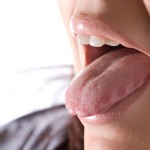
Xerostomia is a subjective sensation of dry mouth, this is a common symptom particularly in older adults and has a variety of causes. Pilocarpine is a cholinergic agonist that non-selectively binds to muscarinic receptors in smooth muscles in the gastrointestinal, urinary and pulmonary systems and stimulates the production of secretions from the salivary and sweat glands. However it also causes a range of adverse effects including excessive sweating and salivation so needs to be used with caution. The aim of this study was to determine the effect of 0.1% pilocarpine mouthwash on subjective dryness, minor salivary flow rates and the unstimulated whole salivary flow rate in xerostomic patients.
Patients aged 20 or older with xerostomia for more than 3 months were eligible. Patients currently receiving treatment for xerostomia and those with acute asthma, acute iritis, narrow-angle glaucoma, pilocarpine allergy, pregnancy, lactating women were excluded. Patients were randomised to either 0.1% pilocarpine solution as a mouthwash, made by diluting 2% pilocarpine hydrochloride eye drops with 0.9% saline (test) or 0.9% saline as a mouthwash (control).
The short-term effects of topical pilocarpine were investigated by measuring the severity of oral dryness [on a numerical rating scale (NRS)], minor salivary flow rates and the unstimulated whole salivary flow rate before and after using the mouthwash at predetermined times. Oral dryness and the minor salivary flow rates were measured before, immediately (0 min) and 30 and 60 min after using mouthwash and unstimulated whole salivary flow rate before and 60 min after mouthwash use.
- 60 patients were randomised; 53 completed the study (27 in test group; 26 in control)
- The severity of oral dryness decreased significantly at 0, 30 and 60 min after mouthwashing in both groups but not significantly between the two groups at any of the time points.
- Severity of oral dryness did not change significantly after 4 weeks in either group
| NRS score* |
Pilocarpine |
Saline |
| Baseline |
5.1 ± 2.0 |
5.7± 1.7 |
| Immediately after mouthwash use |
3.0 ± 1.9 |
4.2 ± 1.8 |
| 30 mins after mouthwash use |
3.7 ± 2.0 |
4.1± 1.8 |
| 60 mins after mouthwash use |
3.9 ± 1.9 |
4.5 ± 2.2 |
| At 4 weeks |
4.6 ± 2.5 |
5.1 ± 1.6 |
* Numerical rating scale (0–10, where 0 = no dry mouth and 10 = the worst dry mouth imaginable)
- No adverse effects were reported.
The authors concluded
0.1% pilocarpine mouthwash caused a larger increase in minor salivary gland secretion and unstimulated whole saliva than the 0.9% saline mouthwash until 60 min after mouthwashing, but the effectiveness in relieving subjective oral dryness did not differ significantly between the solutions. Thus, further studies are needed to determine the minimum concentration of pilocarpine that relieves oral dryness effectively without exerting adverse effects and that is superior to other solutions such as saline. Such studies should include objective measures such as minor salivary gland secretion and unstimulated whole saliva secretion rates.
Comment
There have been two previous systematic reviews which have considered pilocarpine in the management of xerostomia Brennan et al in 2002 and Berk in 2008. In addition more recent Cochrane reviews have looked at non-pharmocological treatments for the relief of dry mouth ( Dental Elf 3rd Sept 2013 and topical treatments (Dental Elf -11th Jul 2012) . The Cochrane review on topical treatment did include one trial of pilocarpine lozenge use and this current trial could potentially be eligible for inclusion in that review. However, this trial is small and of short duration so more information is needed to assess thre risks and benefits.
Links
Kim JH, Ahn HJ, Choi JH, Jung DW, Kwon JS. Effect of 0.1% pilocarpine mouthwash on xerostomia: double-blind, randomised controlled trial. J Oral Rehabil. 2014 Mar;41(3):226-35. doi: 10.1111/joor.12127. Epub 2013 Dec 30. PubMed PMID: 24527846.
Berk L. Systemic pilocarpine for treatment of xerostomia. Expert Opin Drug Metab Toxicol. 2008 Oct;4(10):1333-40. doi: 10.1517/17425255.4.10.1333 . Review. PubMed PMID: 18798702.
Brennan MT, Shariff G, Lockhart PB, Fox PC. Treatment of xerostomia: a systematic review of therapeutic trials. Dent Clin North Am. 2002 Oct;46(4):847-56. Review. PubMed PMID: 12436835.
